Stan Lynch: The Former Heartbreakers Drummer is Now Fighting the Speaker Wars
by Best Classic Bands StaffTo most rock fans, the name Stan Lynch rings one loud bell: From 1976, when the band formed, until his departure in 1994, Lynch was the drummer with Tom Petty and the Heartbreakers. He was on board for all of the group’s early recordings and gigs, and then he no longer was. But what happened to him?
After leaving the Heartbreakers—he says his exit was mutually agreed upon—Lynch moved from L.A. back to his native Florida and went into production work, songwriting and serving as a session musician. He was helped out in the beginning by a pair of heavyweights, Eagles’ Don Henley and world-class guitarist/producer/songwriter Danny Kortchmar, and once he got a foothold, Lynch found himself collaborating with everyone from Ringo Starr to Bob Dylan, Tim McGraw to the Band to Henley and Eagles.
It wasn’t until just recently, however, that Lynch considered joining another band, let alone co-leading one. But that’s exactly what has happened. After meeting singer-songwriter-musician Jon Christopher Davis and striking up a musical partnership, the pair put together a band they call The Speaker Wars. Davis is the nominal frontman, but Lynch, besides playing drums, also contributes guitar, keyboards and other instruments, some vocals, and he co-produced the band’s self-titled debut album. The other band members are guitarist Jay Michael Smith, bassist Brian Patterson, percussionist Steve Ritter and keyboardist Jay Brown.
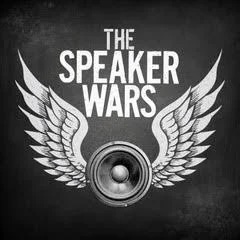 Lynch is thrilled to be back in front of audiences, this time not solely as the timekeeper for someone else, but as one of the guys calling the shots. The Speaker Wars’ self-titled debut album was released on May 30, 2025, via Frontiers Music.
Lynch is thrilled to be back in front of audiences, this time not solely as the timekeeper for someone else, but as one of the guys calling the shots. The Speaker Wars’ self-titled debut album was released on May 30, 2025, via Frontiers Music.
Best Classic Bands spoke with Stan Lynch, born May 21, 1955, about his new creative outlet, his days with Tom Petty and the Heartbreakers and the years in between.
Best Classic Bands: You celebrated your 70th birthday this year. How are you doing?
Stan Lynch: I’m good, man. I had COVID for about 10 days and it really laid me low this time. It threw me under the bus. I didn’t even know if I was making sense; I was kind of in a fog. It’s funny, I only get [COVID] when I’m playing the drums. I went out with Mike Campbell’s band [the Dirty Knobs], got COVID. Went out with my own band, got COVID. It probably speaks to the company I’m keeping.
Ha. Well, let’s talk about something more pleasant, this new album of yours. First, can you explain the name Speaker Wars?
Sure. It’s a joke that I have with my co-writer on the record, Jon Davis; we are the bookends of the band. It basically became a running gag. I really am a lover, not a fighter, but fighting for the music, for what’s coming out of the speakers, is always a legitimate fight. If you can make something out of that, that makes sense. That’s really what it all comes down to.
How did you and Jon find each other and start working together?
We were both staff writers in Nashville many years ago. I was writing for a company, he was writing for a different company, and they put us together, like a blind date, if you will. I hit it off with Jon immediately. He was making his own record and he was being groomed as one of the new contestants in country music. They asked me to produce him but we were both fired. We bonded immediately over that. He basically just gave me a big hug and said, “Hey, man, nobody’s ever stuck up for me.”
What was the first song that he came up with?
It was called “You Make Every Lie Come True.” That’s the first song we really wrote together. [Ed. Note: It opens up the Speakers Wars album.] That instantly showed me that we both have a sense of humor. He’s very reasonable with me. He doesn’t kowtow. We’re just like, “Hey, what do you feel like writing today?” And he’s great on the keys. He’s cool on guitar. He’s a great singer. So it’s like having a muse in the room when he walks in. I really enjoy his company.
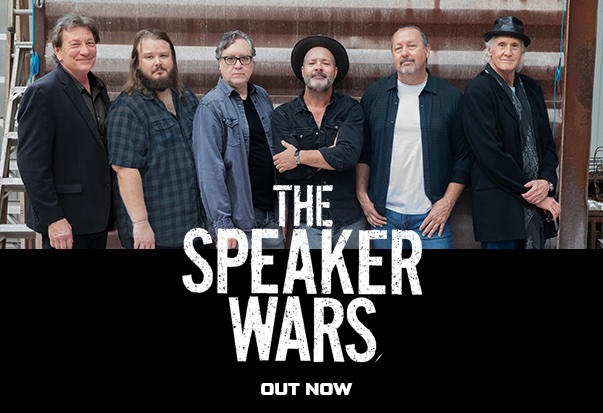
How did the rest of the band come together?
Jon knew them; they’re all from Texas. They all played together. I was the interloper. We had written all these songs and I thought I was just writing songs for Jon’s record, then he said, “I’ve got a cartel of cats that I play with in Texas. Fly on out, let’s get in the room and rumble and see who is a fit.” And these guys were an immediate fit. It was a no-brainer. In my early primal, feral stages, it was always like, “Hey, can we just get in a room and make good music?” Tom [Petty] used to always kid us. He’d say, “Take care of the music. It’ll take care of us.” That was his mantra. I’m still carrying that flag in my life. It’s like, hey, I love the music. Don’t know sh*t about the business.
What was the recording process like?
Well, interestingly enough, a lot of this evolved during COVID, when we were setting fire to our groceries and we were all going to die. It was a terrifying couple of years. Fortunately, I own a recording studio. I have all the gear and all the cool stuff. Jon would come to me; we would write and record at my place, and we built a batch of probably about 30 songs. I was way too close to it, but we have an executive producer named Mike Pisterzi, who curated all the material. Mike picked the songs and said, “Let’s finish these and actually make a record.”
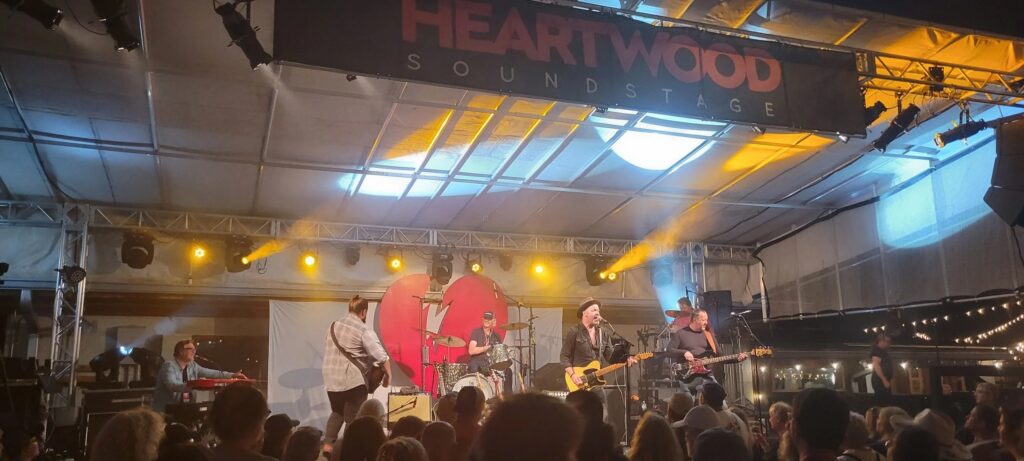
Do you see the Speaker Wars as an ongoing project?
Oh yeah. I love it. I love doing it. In my delusional fantasy world? Sure.
What would you say you took away from 18 years with the Heartbreakers that you are able to use with this band? What was the most important thing you learned there?
A lot of perspective, a lot of knowledge. I didn’t think it was happening at the time, but it was happening really fast. I was absorbing a lot of gut punches, good and bad, all the way through the whole thing. There were amazing highs and then there were some chaotic depression moments where you just went, “This is unbelievably bad. Oh my gosh.” I’ve finally digested all of that. When you’re in it, you don’t have that privilege. You’re just living. I’m very grateful I didn’t do the last 20 years [of the Heartbreakers], quite frankly, because it would have killed me. I would have never been able to wash it off of me.
So you feel like you got out at the right time.
The timing was incredible. I didn’t know that at the time. I didn’t fit in, personality-wise; I couldn’t find a way to get along with them. I didn’t want to live in L.A. My life had absolutely shifted 180 degrees, almost in one night. Musically, I had nothing. So it was a mutual moment where we went, “I gotta go. I’m sorry for the awkwardness of it all.” Communication would have been more interesting, but how do you communicate with guys that are rock stars? They’re crazy. Everybody’s crazy.
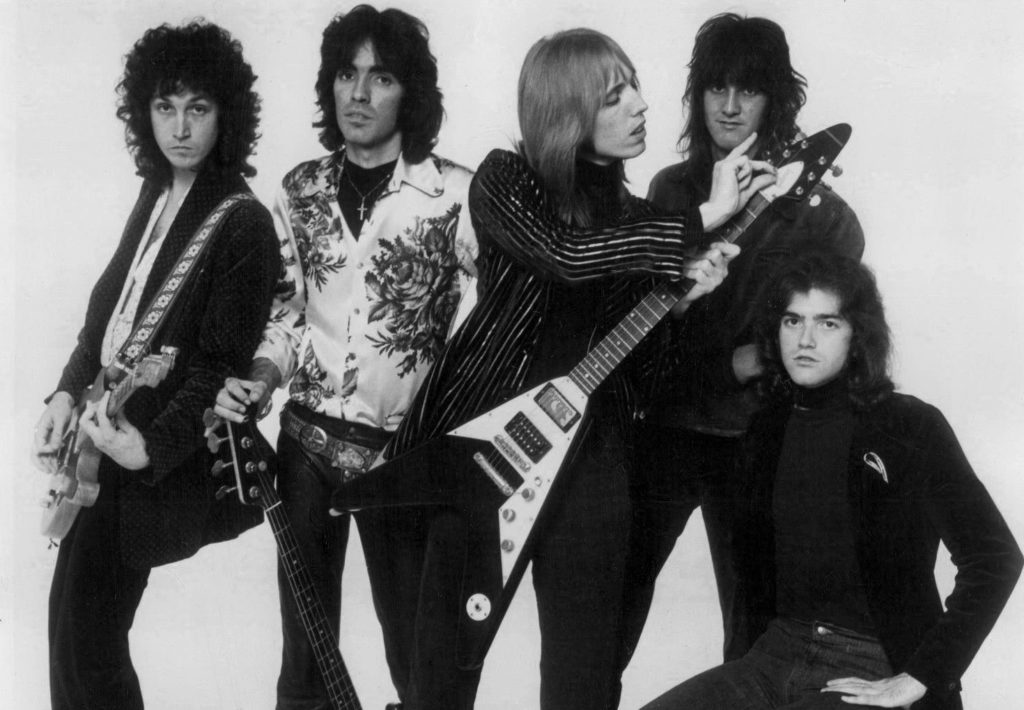
Tom Petty and the Heartbreakers in 1977 (l. to r.) Mike Campbell, Ron Blair, Tom Petty, Stan Lynch and Benmont Tench. (Photo from Wikipedia, credit: ABC/Shelter Records)
How did you shift from being a drummer in a famous band into production and session musician work?
I’ve been really fortunate. Don Henley and Danny Kortchmar cracked the door. They said, “You seem to have something to offer and you have a strong desire to learn the craft of production and songwriting.” Basically, they just let me audit their masterclass for several years. It was an amazing experience. I really wanted it and they were really generous with me and that led to so many things. Don is almost always at the top of his game. They cut me a little slack. They would say, “Hey, man, don’t do that again.” You get to be a dumbass once, but they were really, really good with me, and they really taught me the discipline of what was involved. When you’re in a band, you do your thing, quote unquote. With Don, you learn the skill and you learn what’s involved in making records. Danny Kortchmar is a hell of a musician. So you just stand around and whatever oil is coming off of that guy’s forehead, you can use it. Don is the one who taught me that it can always be better. And shame on you if you’re not willing to go that extra mile. I don’t even know how to describe it. Like a talisman for me or something. He just went, “This is where you need to go. If you want this job, if you want to stand in my room, this is what’s going to be required.” Don’s really tough, but he’s tough on himself so he’s tough on you. I always thought of him as very egalitarian. He was extremely, like, “Hey, you get the same treatment I give myself.” If he’s telling me it needs to be better, believe me, when he’s at the microphone, he’ll be the first guy to go, “I got a better one.” So I learned from him that it’s not personal when you’re working to a better result; your ego must go on the hat rack. You can’t take it personally. If somebody says, “I don’t like that bass drum part” or “I don’t like that line” or “the way you play the tambourine,” you have to go well, damn right. You got to stand aside and go, “There’s a better man. Let me see if I can find him for you.” Don taught me all that. How do you thank a guy for that?
Watch Tom Petty and the Heartbreakers perform “Don’t Do Me Like That” live
Even though you were out of the Heartbreakers for a long time by then, what was your reaction when you heard Tom died in 2017?
I was shocked, but I wasn’t actually surprised. I had heard the rumors, and I’d seen what had happened to Howie [Epstein, Heartbreakers bassist, who died of an overdose in 2003]. These were guys that I knew in their prime. When I knew Tom, he was an athlete. He would jump off a four-foot drum riser and land on his feet and keep playing and running. Tom was a ball of fire when we played together. He was almost like a tennis player. He served his volley. That guy, he had me on my toes. There was never a gig I played where I could be flatfooted with Tom, ever. Over the years I could see the world changing. I think I got the word from Ben [keyboardist Benmont Tench], who called me and said, “I just need you to know what’s going down.” I was probably just like, “Oh sh*t.” Probably what I still say. I still fall to my knees and thank the guy. I can’t believe how fortunate I was to catch that wave. I miss him, but I miss the man I used to know. Toward the end of his life, I didn’t know him at all. We didn’t really communicate.
Related: Remembering Tom Petty
Do you have a relationship now with Mike Campbell and the other surviving members?
Oh yeah. Mike and I are pals. I went and played with his band, the [Dirty] Knobs, and I had a ball. Mike and I were roommates in the old days. He’s my boy, and Ben is a true friend, even before we played in the band. I have deep, deep affection for Ben as a man. And then of course, as a musician, as a composer, as an artist, but as a dude, that is one first-class top-shelf guy. He’s a soul man. I still have a hope that one day we [the surviving Heartbreakers] will get to play together again. I’m probably the only guy that wants to do it. I think everybody else has really moved on. They all seem very happy. When I do talk to Mike, he seems really happy with the Knobs and the work he’s doing and the musicians he has. And Ben is loving doing his one-man show. I have to always remember they did it twice as long as me with the Heartbreakers. So I have a feeling that going back into that vault is probably not as romantic as it would be for me. That’s a really old girlfriend for me now. I can imagine she’s probably still pretty and that’d be a lot of fun. But they know more than I do.
You were inducted into the Rock and Roll Hall of Fame with those guys. What does that mean to you?
What it meant to me was that I got to see the guys again, ’cause I hadn’t seen them in years. Then Mike called me and he said, “We’re getting inducted. They’ve asked that the original band get together and play [at the induction ceremony], so I’m calling you.” My first thought was, is he asking me? I remember saying, “Does that mean you want me to come play?” And he goes, “Yeah.” I went, “Well, I’d love to see you guys.” So I went there probably a little too hopeful that I would be able to rekindle a friendship with them all, and they obviously moved on. It was slightly awkward for me to be there. It wasn’t a great experience. The whole thing, what it means to me, I guess it’s more like, it’s better than not. I don’t wear it. I don’t introduce myself that way. It’s not on my license plate on my car.
Watch the Speaker Wars perform “Rockin’ Around (With You)” live in Houston in 2025
The Speaker Wars’ album is available in the U.S. here, in Canada here and in the U.K. here.

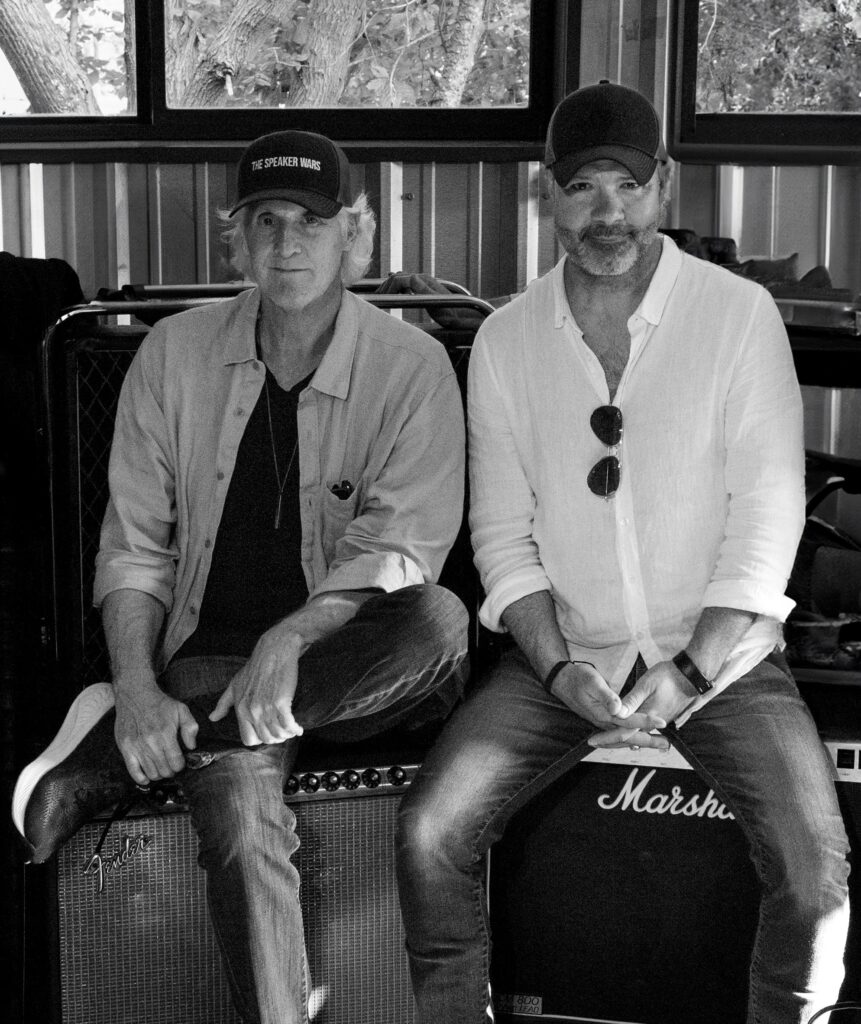
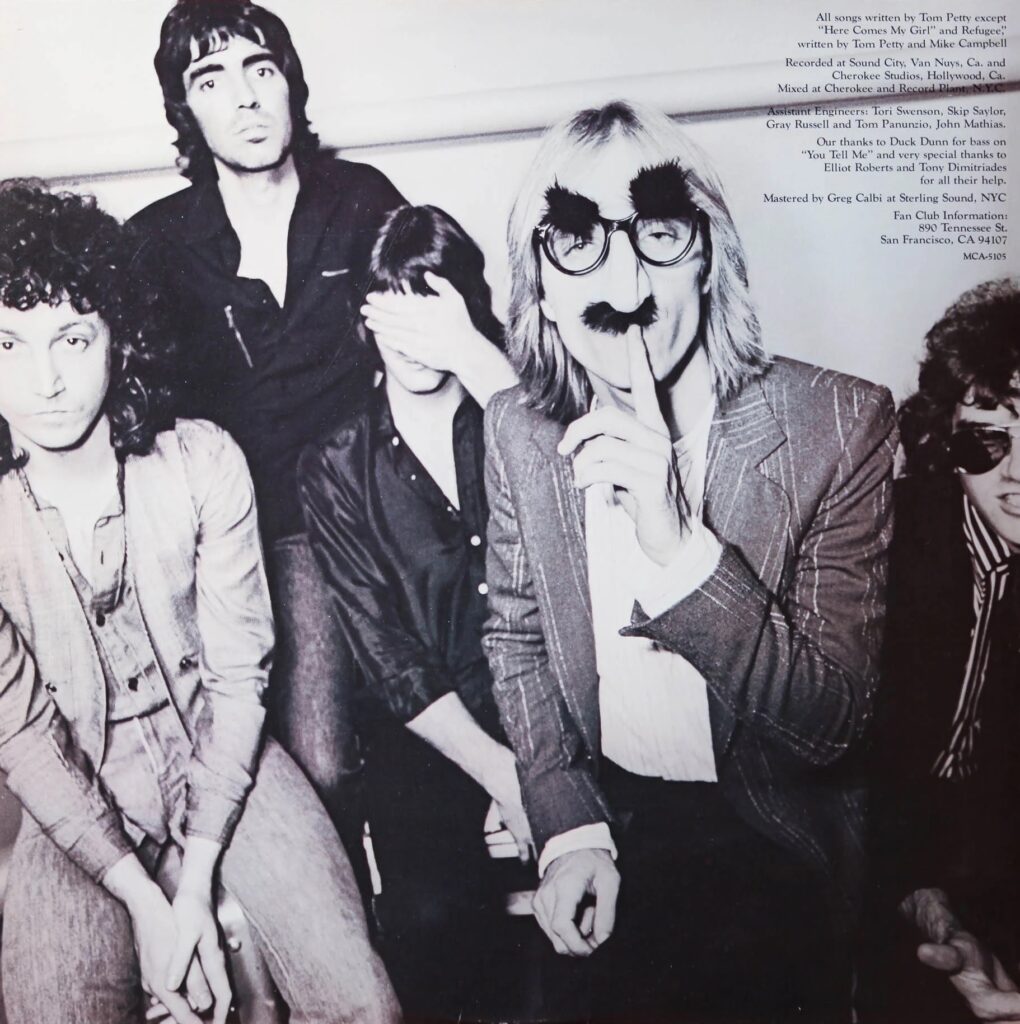

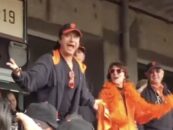

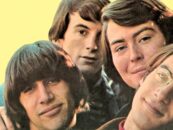
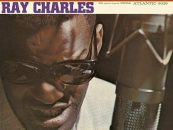

2 Comments so far
Jump into a conversationfine interview, and very interesting that he would want to put together a band with the former Heartbreakers.
I’ve met Stan, I live close by. I met him before Tom passed. I recognized him at a local restaurant, and said “Stan Lynch?” He comes across physically fit, very confident, but humble. He said the days with TPATH were far behind him, and that he had no interest in social media. I wish I recognized the musician he was there with, but I’m not sure who it was. Nice guy.